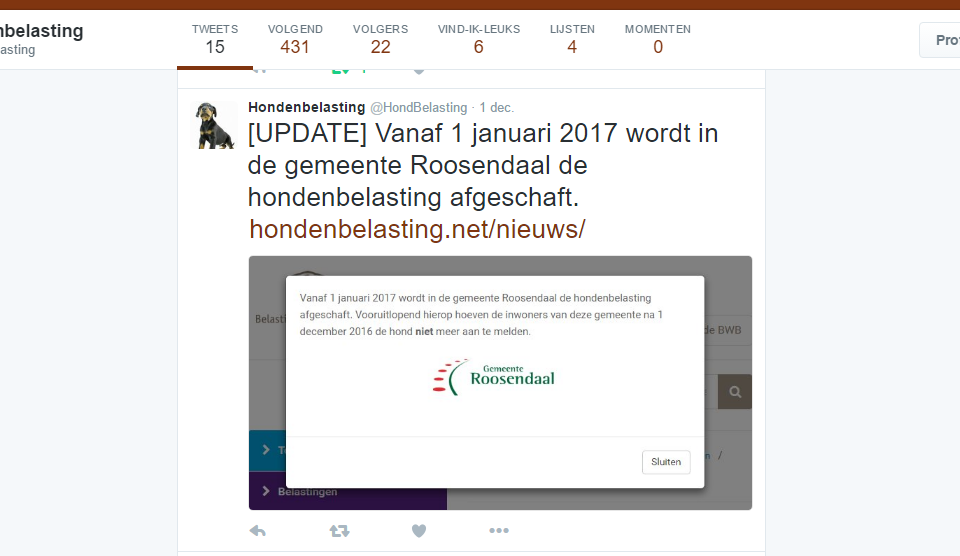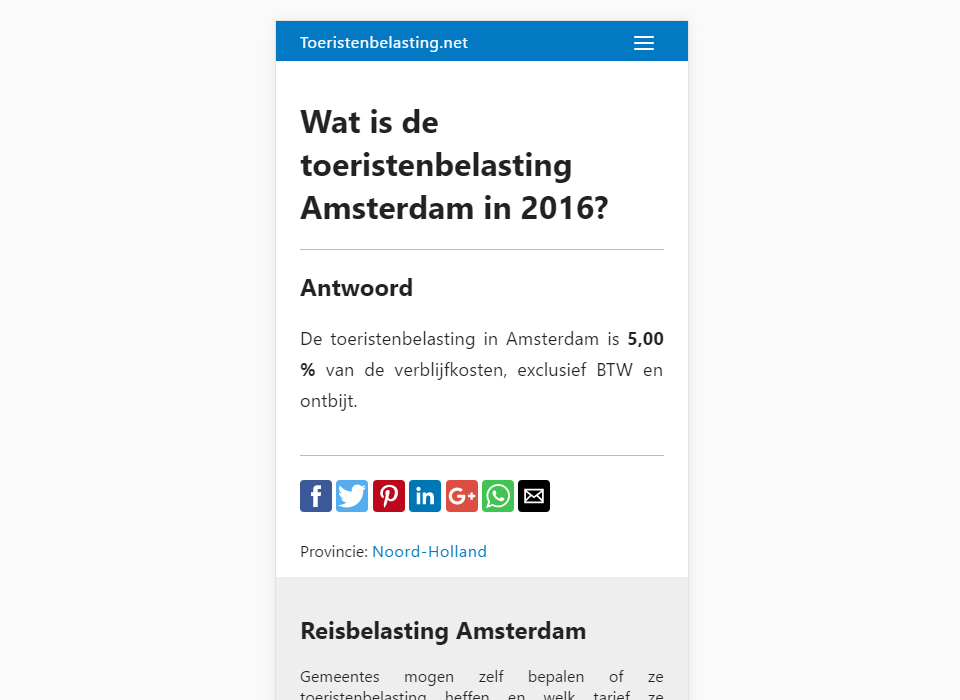Want an email when I post a new article?
Subscribe to my personal email list!
In my previous post I mentioned I bought a site about dog tax last year, and the last couple of weeks I’ve been updating it a lot. My main goal was to update the content for 2017 and I wanted to experiment to gain more traffic. Last year I put up an overview article that triggered at least 30% of all traffic in 2016. I’ve been rewriting articles that were ranking low in Google and I’ve started a “news” section. Last night I checked Google Analytics and saw this:
Was this real? I couldn’t believe the enormous increase in traffic all of a sudden, and I soon realized that a news item was going somewhat viral on Facebook. That morning at 7:40 I posted news I had just stumbled upon while researching for another site of mine. The municipality (“Gemeente”) Roosendaal announced on their website that they will repeal dog tax starting January 1st, 2017. I took a screenshot, cut it to size, and typed out what was said in the screenshot. I posted it in the news section of the website, and on Twitter with a link to that news section and the screenshot. This is what I posted on Twitter:
As you can see from the post, it doesn’t look like there is much interest. The Twitter account is also only four days old at this point, and has no more than 20 followers. I’m not sure what triggered the first person to share this news on Facebook, they could’ve also landed on the website from Google Search. Even though I’m not sure whether or not Twitter was the source, I do know that it took me just two minutes to publish the news. The link got shared on Facebook and from there it exploded the traffic and is still generating quite a lot of traffic. The post was also the first post in which I included a screenshot, which I believe has helped in making this an “attractive” link to share.
The reason I stumbled upon this news is because I’m researching a lot about tourist tax in each Dutch municipality for another website. This means I have to manually search for about 400 websites, check I have to correct page for the tourist tax and copy and paste the link in a spreadsheet. Some municipalities have a tax based on a percentage, some have a fixed price, and others have different prices for different types of accommodations. Instead of manually copy-pasting these values in multiple different columns, I’m building a database of URL’s and a “crawler”. The crawler will index the website, search for the values and store them in the required format. By building this database and the crawler I can do the exact same for my dog tax info-site and I can set up a number of new sites about different topics of a municipality. Having all this data will allow me to come up with all different kinds of statistics, based on averages, highs, lows and different groups like provinces. Having to do all this manually would take weeks, and I would need to remake calculations for every different statistic. My guess is that news-sites and bloggers will want to use my statistics and hopefully credit the site properly to increase my traffic.
The idea came to me after I was having a hard time finding the dog tax for each municipality, I wanted a more “question and answer” format for these things. The main goal is to make it easier to find an answer to your question. After publishing the website with only about 20 pages, Google seems to agree with me as I am ranking 10th on average after only three days.
This website is also generated by the same application I talked about in my previous post. This allows me to make a single template, and within a second the entire website is generated out of a simple text file. I’ve also added the option to generate a website with AMP HTML (ampproject.org), which I will talk about more another time.
Next week I will continue to work on the “Generator” application, and hopefully I’ll be able to publish all the tourist tax information for all municipalities based on the information from my crawler. When that’s all done I can create informational websites within a couple hours instead of a couple weeks or even months.